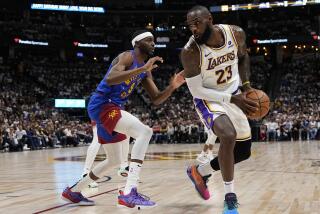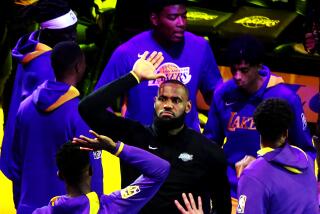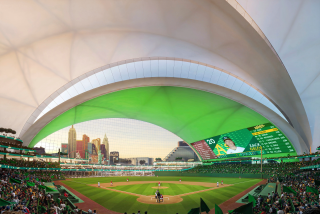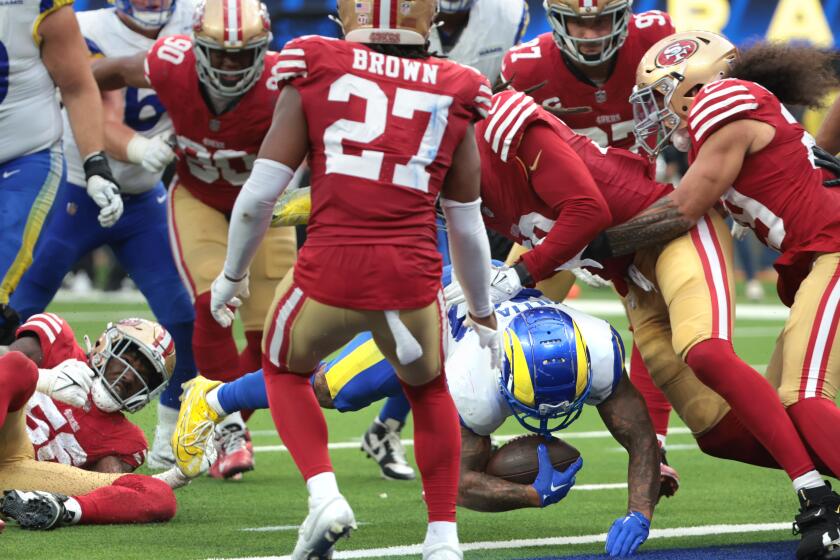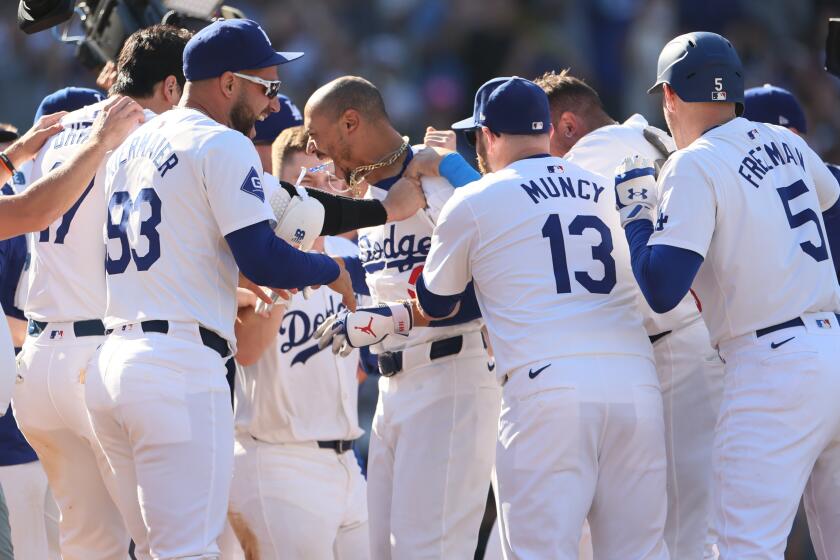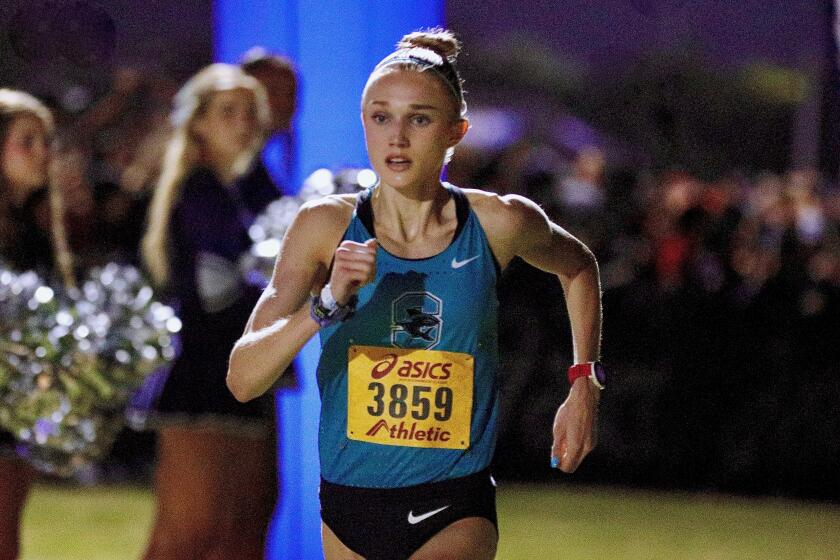Now the ball’s in the NBA’s court
As the NFL wrapped up its lengthy off-season collective-bargaining battle, the NBA’s lockout of its players continued Tuesday with no progress in sight.
One major sports labor deal down, one to go.
As the NFL wrapped up its lengthy off-season collective-bargaining battle, the NBA’s lockout of its players continued Tuesday with no progress in sight.
“If there’s one thing us labor lawyers know -- and the public will see in this [NBA] case -- there’s nothing like the prospect of deadlines, in this case, missing games, that forces action,” said Seth Borden, a partner in employment and labor law for the Washington, D.C.-based firm McKenna Long and Aldridge.
The NBA regular season isn’t scheduled to begin until Nov. 1, so expect a slow summer.
Representatives from both sides -- but not NBA Commissioner David Stern or union head Billy Hunter – are to meet soon for their annually scheduled discussion about the past season’s audited financial reports for all 30 teams. The next labor negotiating session is likely to take place in early August.
Meanwhile, some players are exploring overseas action.
The Lakers’ Pau Gasol will play in Spain’s Olympic-qualifying effort this summer. And a Turkish pro team has signed star guard Deron Williams of the New Jersey Nets and has talked to Kobe Bryant.
“There are offers being made to several of our key players every day,” Hunter told reporters, adding that he’s instructed NBA players to have ample insurance and an “out” clause in their overseas contracts for when the lockout ends.
NBA owners have been mum about their labor battle plans.
The NBA players union is also being watched to see if it will follow the path of NFL players by decertifying as a union and filing an antitrust lawsuit against the league.
The union is waiting for the National Labor Relations Board to act on a complaint the players filed in May, alleging that the NBA did not bargain in good faith before their collective-bargaining agreement expired June 30.
“If [the NRLB] issues a complaint and a preliminary injunction asking a [federal] district court to [end] the lockout, that would be a significant shift that would end a major leverage point of the owners,” Borden said. “But it’d be a huge blow to the players if the NLRB recommends the players withdraw their charge.”
Meanwhile, the NBA says the league lost $340 million in 2009-10 season and that 23 of 30 teams were unprofitable. Before the lockout, players offered to reduce their share of basketball revenue moving forward.
The size of the rollback is what this labor dispute is about. Owners want to cut player salaries from 57% of basketball revenue in the last deal to about 45%, while players offered to take 54.3%.
“The best thing the union can do is get clarity on the actual profits and losses of these teams,” said Dan Lazaroff, a Loyola Law School professor who specializes in sports labor matters. “The springboard would be in convincing players they are losing money.”
In audited numbers released Friday, the league reported that basketball-related income increased 4.8% to $3.817 billion this past season, while player salaries increased 4.8% to $2.076 billion. The league also noted that the average player salary was $5.15 million.
NBA officials say they’ve given the union internal league financial information, plus federal and state tax returns for all teams. The players have voiced doubts about the gravity of the league’s financial plight.
The owners also need to resolve among themselves the issue of increased revenue sharing.
Stern wants the league to triple its revenue-sharing pool to help smaller-market teams. That would help offset the imbalance of local television deals, with cash cows such as the Lakers about to enjoy a Time-Warner Cable deal that could be worth $3 billion over 20 years.
“You might get some blowback from teams like the Lakers on that, but the players want [increased revenue-sharing] too, and if the future of the league is at stake … you need a healthy league to be a successful big-market team,” Lazaroff said.
More to Read
Go beyond the scoreboard
Get the latest on L.A.'s teams in the daily Sports Report newsletter.
You may occasionally receive promotional content from the Los Angeles Times.
